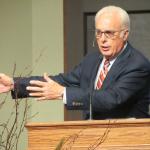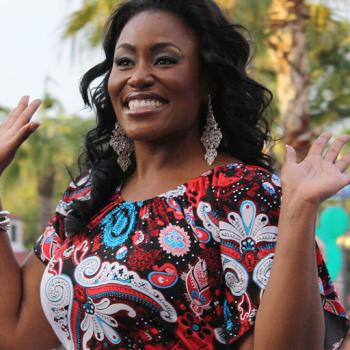
I enjoyed this new three-way conversation from Unherd with Justin Brierley, Liz Oldfield, and Alex O’Connor, moderated by the always capable Freddie Sayers. Justin is a friend who will be known to many of you for his work with Unbelievable?, Alex O’Connor is a young atheist with a growing Internet platform, and Liz Oldfield is a Christian communicator/coach/consultant with lots of thoughts on how to reach post-Christian “nones.” Broadly, everyone was discussing whether or not there’s a “Christian revival” percolating in a UK context, and if so, what it means. Justin thinks there is, and not just because a handful of public intellectuals are making positive noises about Christianity. Alex and Liz sort of agree and sort of don’t.
The conversation took a lot of interesting turns. Alex and Liz had a number of lively “moments” that have sparked some conversation, while Justin held down the calm, quiet center. There’s plenty to write about, but for this post, I’ll just drill down on one point Alex made a couple different times, which, in my opinion, didn’t quite receive the answer it needed. Alex has always objected to “the Tom Holland thesis,” as put forward in Holland’s book Dominion, which is that “everything is Christian,” more or less. All the nice things in our culture flow downstream of Christianity, and even things that appear to be at odds with each other share Christian roots. So, for example, people who oppose gay marriage can point to Paul, but people who advocate for gay marriage can point to nice-sounding ideas about human rights. But where did the idea of human rights come from? Uh-oh.
But Alex isn’t impressed. He’s said so before on Ben Shapiro’s show, and he reiterated the same objections for the Unherd audience last week. He doesn’t want to thank Christians for all the nice things, because he doesn’t think he needs to. He thinks secularists came up with the nice things all by themselves, and now Christians are just trying to steal the credit. You can watch the end of Glen Scrivener’s response video here, where Glen genially calls Alex’s rant a load of “tosh.” Glen offers some historical rebuttal of the notion that, for instance, “enlightened secular rationalists” were the ones who really ended slavery. Really?
I think that’s all good and needed, but Glen chose not to pick up a different strand of Alex’s rant that also merits a reply. Fundamentally, Alex is a leftist, with strong leftist views on feminism, gay marriage, and so forth. He looks at these “waves,” then looks at passages in the Bible that clearly rule out female priests, or clearly rule out homosexual romance, and says, “One of these things is not like the other.” Of course, various churches have “evolved” here, including the Church of England, which no doubt Alex approves, but he would say they “evolved” by venturing beyond the biblical text and doing mix and match with secular humanism.
That was a rather uncomfortable thing for Alex to say in this conversation. I admire his forthrightness. However, I noticed that his conversation partners chose mostly to let this point pass. I think there were a few reasons for this. One reason is that all three of them would (I’m guessing) be more or less on the same page anyway with regard to feminism. Justin’s wife is even ordained in the CofE. This of course, is a festering debate in Anglican Church of North America. A few months ago, I wrote about how Calvin Robinson came over the pond and got deplatformed at an Anglican conference in Charleston for saying the awkward bit out loud here. It might be a non-issue for the British, but in the American Anglican context, the issue isn’t going away, and it may well lead to more schism down the road.
The issue of gay affirmation—for both clergy and laity—is even touchier. The CofE has spent years, nay decades, “officially” dawdling on the issue. But functionally, the progressives took over the show long ago. I would guess that Justin leans more conservative on this issue. But based on this 2019 podcast Liz Oldfield did with lesbian “priest” Sally Hitchiner (who’s currently in a civil partnership), Liz doesn’t seem too bothered about it. I mean, here’s the episode description:
Rev Sally Hitchener is an Anglican priest and Associate Vicar of St–Martin–in–the–Fields, Trafalgar Square. She was previously co–ordinating Anglican Chaplain and inter–faith advisor at Brunel University, and is the founder of Diverse Church, a charity which supports LGBT+ Christians.
In this episode she discusses her sacred value of gift, her experiences as a gay female priest, and why sometimes being an outsider can be a blessing.
Now, maybe Liz would say that she personally has some “different convictions” than Sally on gay marriage, etc. But the point is that she clearly regards Sally as a Christian co-laborer, and she appears to be quite unconcerned about the state of Sally’s soul, or the souls of the various people Sally is guiding. As far as Liz is concerned, Sally should keep up the good work. If they disagree, their disagreement appears secondary, perhaps somewhere on the level of the credo versus pedobaptism debate. At one point in the Unherd dialogue, Oldfield refers to the “massive values gap” on sexuality that causes many “nones” to hang back from taking the leap. But there are any number of churches that would be happy to baptize them where they are, no leap required.
To be fair to Oldfield, I also saw her positively bumping this rather salty take by Theos think tank head Nick Spencer on the attempt to cancel Scottish politician Kate Forbes. Spencer mocks the people who are hounding Forbes for believing “ooh…wrong, archaic, bad things” about marriage. (Even though truthfully, Forbes isn’t much of a firebrand, and there’s probably no concrete sense in which she would get in the way of anyone on the progressive left. It’s all theater.) I’ve also seen Oldfield land on the side of Christians who would prefer not to bake gay wedding cakes, to give her some more credit. My guess is that she occupies roughly the same territory here as someone like the American Anglican writer Tish Harrison Warren: trying hard to be nice and warm to everyone on all sides of the debate, but expressing dismay when the progressive left makes it clear they don’t really believe in nice, warm things like free speech or religious liberty.
This might make Oldfield a charming dialogue partner, but it doesn’t make her a particularly strong or helpful guide when trying to answer a hard-edged question like O’Connor’s. You can sense her ambivalence when she earnestly agrees with him that yes, indeed, Christians have “squabbled and wrestled and discerned” over all this knotty stuff for a very long time. “Alex is completely right. There are many strands to this tradition,” she says, “There are Christianities, right?”
Well…wrong, actually. There’s Christianity, and then there’s heresy. Tom Holland’s thesis may hold in a loose sense, and it might be useful in what it adds to the taxonomy of heresy, so to speak. But as I’ve written before, at the end of the day all he’s really done is reinvent the mainline church wheel for a secular audience. Although, to be fair to Tom, he’s a bit complicated himself in his ideas about church. I sometimes get the sense that he would like a church which is very robust on the creeds, on all the “weird” supernatural bits, on miracles, and so on, but has a tolerant liberal view of anthropology. But of course, a church that’s “progressive” on the latter is going to “progress” on all sorts of things. Conversely, a church that takes Tom’s general advice to “stay weird” on the latter is more likely to “stay weird” on the former. I wonder why?
This is the can that won’t be kicked down the road, or nudged off the road, in serious conversations around “Christian revival.” Because as long as it’s allowed to remain a bump under the rug, so to speak, we can’t really talk about what Christian revival would really mean in a full-throated, holistic way. We can only talk about a “sort-of Christian revival.”
That’s not to say that I think every single thing that could be said about all this must be said in every single context. There’s a time and a place for everything. However, I’m inclined to think that when an honest atheist very bluntly asks, “Isn’t one of these things not like the other?” he deserves an equally blunt reply.













